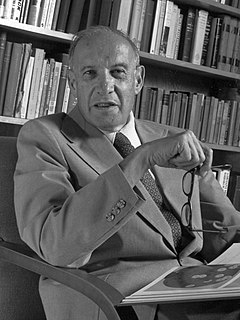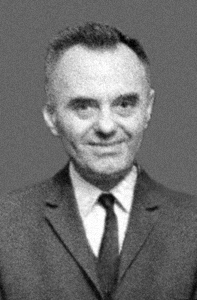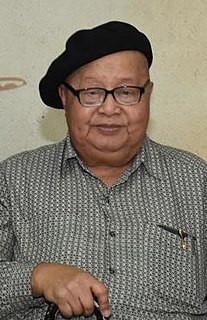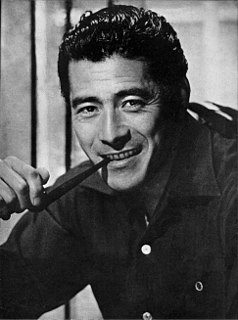 W
WNorihide Abe was a career officer and Lieutenant General in the Imperial Japanese Army who was the most senior Japanese officer killed in combat during the Second Sino-Japanese War.
 W
WRihachirō Banzai was a lieutenant general in the Imperial Japanese Army and advisor to the government of the Republic of China, who later served as a politician in the House of Peers.
 W
WThomas Baty, also known by the name Irene Clyde, was an English transgender lawyer and expert on international law who spent much of their career working for the Imperial Japanese government. In 1909, they published Beatrice the Sixteenth, a utopian science fiction novel, set in a postgender society. They also co-edited Urania, a privately printed feminist gender studies journal, alongside Eva Gore-Booth, Esther Roper, Dorothy Cornish, and Jessey Wade.
 W
WJohn Cutting Berry was an American physician and missionary. He was dispatched by the American Board to Japan, where he practiced medicine in places including Kobe, Kyoto, and Okayama. In 1911 he was awarded the Order of the Sacred Treasure, 3rd class.
 W
WGuido Biscaretti di Ruffia was an Italian soldier and politician.
 W
WWaynman Dixon (1844–1930) was a British engineer, known for his work on the Great Pyramid of Giza and for discovering the only Egyptian artefacts to be found inside that pyramid.
 W
WPaul Page Douglas Jr was a flag officer in the United States Air Force, and an ace.
 W
WPeter Ferdinand Drucker was an Austrian-American management consultant, educator, and author, whose writings contributed to the philosophical and practical foundations of the modern business corporation. He was also a leader in the development of management education, he invented the concept known as management by objectives and self-control, and he has been described as "the founder of modern management".
 W
WLieutenant-General Friedrich Wilhelm Magnus Heinrich Walter von Eberhardt, generally known as Walter von Eberhardt, was a German military commander during World War I and the Lithuanian–Soviet War of 1918–19. He was the son of later Prussian Major general Heinrich von Eberhardt (1821–1899). His older brothers also made career in the Prussian army. Magnus (1855–1939) raised till General of Infantry, Gaspard von Eberhardt (1858–1928) to Lieutenant general. Notably, he was the first inspector of the flying troops (Idflieg) from 1913 to 1914. In 1930 Unserere Luftstreitkräfte 1914–1918 was published under the editorship of von Eberhardt.
 W
WOskar Wilhelm Enqvist was a Finland-Swedish admiral in the Imperial Russian Navy, noted for his role in the Russo-Japanese War of 1904-1905.
 W
WGodefridus Jan "Fred" de Graaf is a retired Dutch politician of the People's Party for Freedom and Democracy (VVD) and jurist.
 W
WSugako Hashida was a Japanese scriptwriter. She is known particularly for writing the NHK Asadora Oshin, and was considered Japan's most successful TV drama scriptwriter. She established Hashida Cultural Foundation. Her real name was Sugako Iwasaki .
 W
WRoman Stanisław Ingarden was a Polish physicist, specialised mainly in optics and statistical mechanics, son of the Polish philosopher Roman Witold Ingarden.
 W
WMishio Ishimoto was a Japanese seismologist, doctor of Science. He was a professor at Tokyo Imperial University.
 W
WFrancisco Sionil José was a Filipino writer who was one of the most widely read in the English language. A National Artist of the Philippines for Literature, which was bestowed upon him in 2001, José's novels and short stories depict the social underpinnings of class struggles and colonialism in Filipino society. His works—written in English—have been translated into 28 languages, including Korean, Indonesian, Czech, Russian, Latvian, Ukrainian and Dutch.
 W
WEgi Kazuyuki was a Japanese politician who served as governor of Hiroshima Prefecture in 1898–1903. He was born in Yamaguchi Prefecture. He was also governor of Ibaraki Prefecture (1896–1897), Tochigi Prefecture (1897), Aichi Prefecture (1897–1898) and Kumamoto Prefecture (1903–1907). He was a recipient of the Order of the Rising Sun and the Order of the Sacred Treasure as well as being a member of the French Legion of Honour.
 W
WKim Suk-won was a Korean officer in the Imperial Japanese Army during World War II. He was the third-highest ranking ethnic Korean in the Japanese Army behind Lt. General Hong Sa-ik and Korean Crown Prince Euimin. He also became a general in the Republic of Korea Army during the Korean War.
 W
WSir Frederick William Maze was a British civil servant and Chinese customs commissioner, serving as Inspector-General of the Chinese Maritime Customs Service from 1929 to 1943.
 W
WToshiro Mifune was a Japanese actor who appeared in over 150 feature films. He is best known for his 16-film collaboration (1948–1965) with Akira Kurosawa in such works as Rashomon, Seven Samurai, The Hidden Fortress, Throne of Blood, and Yojimbo. He also portrayed Miyamoto Musashi in Hiroshi Inagaki's Samurai Trilogy and one earlier Inagaki film, Lord Toranaga in the NBC television miniseries Shōgun, and Admiral Isoroku Yamamoto in three different films.
 W
WShūōshi Mizuhara was a Japanese haiku poet and physician.
 W
WNakamura Ganjirō II was a Japanese kabuki and film actor. He appeared in more than 70 films between 1941 and 1980, directed by notable filmmakers such as Yasujirō Ozu, Kenji Mizoguchi, Akira Kurosawa, and Mikio Naruse.
 W
WRyutaro Nomura was a Japanese businessman. He was born in Gifu Prefecture. He was a graduate of the University of Tokyo. He was twice President of the South Manchuria Railway. He was a recipient of the Order of the Sacred Treasure and the Order of the Rising Sun.
 W
WRupert Sumner Ryan, was an Australian soldier and politician.
 W
WŌgimachi Sanemasa was a Japanese pharmacist and politician. He was Grand Chamberlain of Japan (1919–1922). He was the 10th governor of Saitama Prefecture (1899–1900). He was a recipient of the Order of the Sacred Treasure. He was made an earl in 1884, a recipient of the Order of the Rising Sun, 4th class in 1906, a recipient of the Order of the Sacred Treasure in 1910 and a recipient of the World War I Victory Medal in 1915.
 W
WKinuyo Tanaka was a Japanese actress and film director. She had a career lasting over 50 years with more than 250 credited films, and was best known for her roles in films of director Kenji Mizoguchi like The Life of Oharu and Ugetsu.
 W
WMasao Yamaguchi was a Japanese anthropologist.
 W
WYoneda Torao was an Imperial Japanese Army veteran of the Boshin War. He was born in Kumamoto Prefecture. He was Grand Chamberlain of Japan (1878-1884). He was recipient of the Order of the Rising Sun and the Order of the Sacred Treasure.